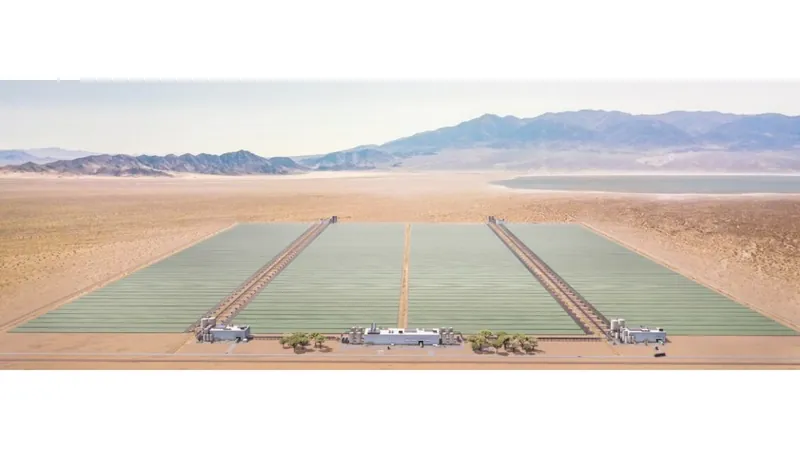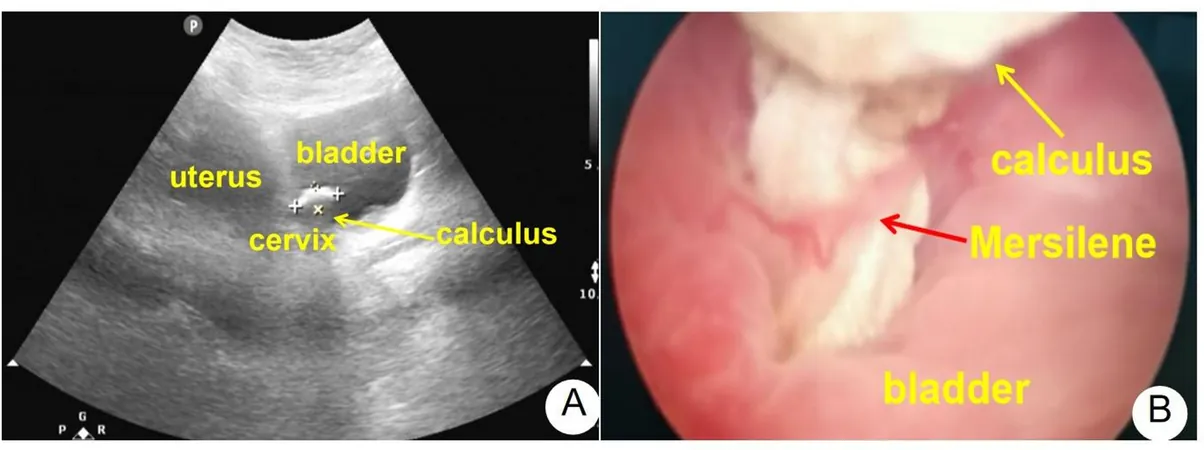
Revolutionizing Energy Efficiency: A Breakthrough Study on Phase Change Materials
2025-05-06
Author: Yu
Nazarbayev University Unveils Groundbreaking Review on Energy-Saving Materials
In an exciting development for the field of thermal energy storage, researchers from Nazarbayev University's School of Engineering and Digital Sciences (NU SEDS) have published a groundbreaking critical review of phase change materials (PCMs), aimed at revolutionizing energy efficiency in buildings. This noteworthy article, now live in the prestigious journal Applied Energy, marks a first-of-its-kind analysis and sets a new benchmark in energy-saving technology.
Unifying Four Decades of Research
Lead researcher Abrar Ahmad, who began his journey as an MSc student at NU and now pursues a Ph.D. at Washington State University, meticulously examined 271 review articles on PCMs, spanning from 1983 to 2024. His comprehensive analysis provides clarity and consistency, synthesizing fragmented literature into a unified body of knowledge.
Four Key Contributions That Make This Review Stand Out
Dr. Shazim Memon, Associate Professor and Vice Dean for Research, emphasizes the vital contributions of the research:
1. Global PCM Database
A groundbreaking compilation covering all commercially available PCMs, complete with manufacturer details and direct product links.
2. Literature Mapping
A frequency analysis of 50 PCM-related topics that identifies under-researched areas, guiding future studies.
3. Integrated Assessments
An in-depth evaluation pairing PCMs with natural ventilation strategies for a comprehensive analysis of economic and environmental impacts.
4. Emerging Frontiers
New realms such as machine learning applications and circular-economy implications are explored, paving the way for cutting-edge innovation.
A Practical Tool for Extreme Climates
Ahmad underscores the review's significance, particularly for regions like Kazakhstan facing severe seasonal temperature fluctuations. It includes a complete catalog of available PCMs alongside vital testing data, empowering designers to optimize energy use. "The review directly matches PCM data to the climate's heating and cooling needs, providing instant recommendations for energy savings," he states.
Economic Benefits that Cannot Be Ignored
The findings also reveal significant economic benefits, showcasing PCM-based systems that can slash electricity usage by a staggering 90% compared to traditional cooling methods, with a fast payback period of just 3-4 years. This data could be invaluable for energy efficiency standards and incentive programs.
Charting a Path Forward for Kazakhstan and Beyond
Addressing the hurdles faced by Kazakhstan's construction sector in adopting PCMs, Ahmad identifies three critical factors: costs, freight, and the need for local production. He advocates for targeted pilot projects to demonstrate feasibility and stimulate broader market acceptance in Central Asia.
In summary, this game-changing review not only provides a wealth of valuable data but also paves the way for sustainable building design and energy efficiency practices that could transform regions with extreme climates.



 Brasil (PT)
Brasil (PT)
 Canada (EN)
Canada (EN)
 Chile (ES)
Chile (ES)
 Česko (CS)
Česko (CS)
 대한민국 (KO)
대한민국 (KO)
 España (ES)
España (ES)
 France (FR)
France (FR)
 Hong Kong (EN)
Hong Kong (EN)
 Italia (IT)
Italia (IT)
 日本 (JA)
日本 (JA)
 Magyarország (HU)
Magyarország (HU)
 Norge (NO)
Norge (NO)
 Polska (PL)
Polska (PL)
 Schweiz (DE)
Schweiz (DE)
 Singapore (EN)
Singapore (EN)
 Sverige (SV)
Sverige (SV)
 Suomi (FI)
Suomi (FI)
 Türkiye (TR)
Türkiye (TR)
 الإمارات العربية المتحدة (AR)
الإمارات العربية المتحدة (AR)